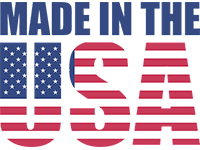|
April 29 marked President Trump’s first 100 days in office. During this time he has issued several executive orders regarding the current regulatory framework, had several of his Cabinet nominees confirmed, and continued to lobby for health and tax reform. In this issue, we highlight key developments and the impact of the first 100 days on our clients’ business, with regard to environmental policy, healthcare, international trade, government contracting, financial services, labor, regulatory reform, and other issues. Venable’s Presidential and Congressional Outlook, which has been a resource for our clients since the election, will continue to provide analysis of legislation, regulations, and executive action in the next 100 days and beyond. | |
| ENVIRONMENTAL | |
 |
With the recent confirmation of Environmental Protection Agency (EPA) Administrator Scott Pruitt, President Trump's environmental priorities are quickly coming into focus. It goes without saying that President Trump's EPA will differ significantly from that of his predecessor. Broadly speaking, recent and forthcoming environmental policy developments can be divided into two major categories: (1) the future of EPA-driven enforcement actions and citizen-initiated lawsuits and, (2) modification or elimination of particular environmental laws and regulations. Our update gives a brief overview of what to expect in each area. |
| GOVERNMENT CONTRACTS | |
 |
There have been a number of legal developments in the past month that may affect government contracts, with respect to legislative and executive branch activity, and to notable federal reports, including President Trump's "Buy American and Hire American" Executive Order and the Small Business Administration's (SBA) proposed new rule amending its small business size regulations. Our update covers these and other developments, that have an impact on the government contracting industry. |
| HEALTHCARE | |
 |
To date, House Republican leadership efforts to garner a majority (216) vote in support of the American Health Care Act (AHCA) have come up short. Assuming no Democrats support the bill, House Republican leaders can lose no more than 22 House Republican votes. Despite initial setbacks, certain House Republicans continue to seek compromises that they hope will produce a majority. On April 25, 2017, Representative Tom MacArthur proposed the latest compromise (the "MacArthur Amendment"). While it is not clear that it will help produce enough votes, the MacArthur Amendment (if enacted into law) would have significant implications for the individual health insurance market, especially with respect to affordability and availability of coverage. Those issues are important, but here we will be focusing on the potential effects of the MacArthur Amendment on employer group health plans. |
| INTELLECTUAL PROPERTY | |
|
This week, President Donald Trump sent the name of his proposed "IP Czar," Vishal J. Amin, to the Senate for confirmation, to succeed Daniel Marti, the current Intellectual Property Enforcement Coordinator. Amin previously served in the Bush administration as the Associate Director for Domestic Policy and at the U.S. Department of Commerce as Special Assistant and Associate Director for Policy in the Office of the Secretary. If confirmed by the Senate, Amin would coordinate the administration’s enforcement policies for copyrights, patents, and trademarks. On April 28, 2017, the Office of the U.S. Trade Representative (USTR) released their annual Special 301 Report on the state of intellectual property enforcement for U.S. companies. No countries were added or removed from the report, but both China and India were placed on the USTR's "Priority Foreign Watch List," which means the U.S. government will be keeping them under the microscope for the next year. Joining China and India on the list are Algeria, Argentina, Chile, Indonesia, Thailand, Kuwait, Russia, Ukraine, and Venezuela. We will continue to monitor the IP landscape under the Trump administration and provide timely updates. | |
| INTERNATIONAL TRADE | |
 |
On March 31, 2017, President Trump issued two trade-related Executive Orders (Orders): one commissions a study on U.S. trade deficits, and the other is intended to target foreign exporters that avoid countervailing duties and antidumping fines. The first Order is aimed at enhancing enforcement efforts against trade remedies violations and increased collection of antidumping (AD) and countervailing (CVD) duties at the U.S. border. The second Order directs the Commerce Department and USTR to launch a wide-ranging assessment of the reasons for U.S. trade deficits within the next three months. Our update provides a summary of both orders. |
| INVESTIGATIONS | |
|
Despite a recent lull in FCPA resolutions, a top U.S. Department of Justice (DOJ) official confirms that, under the new administration, the DOJ is committed to continued aggressive enforcement of the Foreign Corrupt Practices Act (FCPA). In our update, we go into more detail on how the DOJ might enforce the FCPA and the importance of counsel and compliance professionals in ensuring that companies have in place a robust anti-corruption policy that promotes compliance with the FCPA and other foreign and domestic anti-corruption laws, in addition to cooperating with the government during investigations. | |
| LEGISLATIVE AND GOVERNMENT AFFAIRS | |
|
President Trump's 100-day milestone has caused some to evaluate and question the pace of confirmations for administration appointees. Of the 1,242 executive branch positions (which includes 556 "key" positions) that require Senate confirmation, only 25 have been confirmed. These positions include deputy and assistant secretaries, agency heads, ambassadors, Cabinet secretaries, chief financial officers, and agency general counsels. At this same benchmark in their presidencies, former President Barack Obama had 69 confirmations and 190 nominations and George W. Bush had 85 nominations and 35 confirmations. Officials from the Departments of State, Justice, Defense, Homeland Security, Education, and Interior, along with other key agencies have voiced their concerns regarding staffing needs. Additionally, among the vacancies are 93 unfilled U.S. attorney posts and all but two ambassador positions. Former South Carolina Governor Nikki Haley was confirmed by the Senate as the U.S. Ambassador to the United Nations, and David Friedman was confirmed by the Senate as the U.S. Ambassador to Israel. Notably, no senior State Department nominations are pending before the Senate Foreign Relations Committee, and Secretary of State Rex Tillerson has not yet been assigned a deputy. One answer offered by the Trump administration to questions about the delay has been the exhaustive vetting process required for nominees with complex financial situations. We will continue to monitor the confirmation process and provide updates as needed. | |
| LABOR AND EMPLOYMENT | |
 |
R. Alexander Acosta, a former assistant attorney general for civil rights during the second Bush administration and the dean of Florida International University College of Law, was confirmed as the United States Secretary for Labor by the Senate on Thursday. Acosta will likely be pressured to start filling empty Department of Labor positions and to address pressing issues such as the potential repeal of the Obama-era fiduciary rule governing who is a fiduciary as it relates to providing financial-related advice. Acosta also served as a member of the NLRB in 2002-2003. We have been watching for signs of how the NLRB will operate under the Trump administration, and in a January article we reviewed the five things every employer should know about the NLRB and our predictions of the shape of the Board to come. Follow these developments and all of our analysis of the goings-on in Washington on our Presidential and Congressional Outlook resource site. |
| POLITICAL LAW | |
|
On January 28, 2017, President Trump signed an Executive Order that imposes an extra layer of ethics obligations on presidentially appointed members of the White House and Executive Branch. Overall, President Trump's Executive Order takes an approach that is somewhat different than the "Ethics Pledge" issued by the Obama administration, expanding some restrictions and loosening others. In general, under the Trump Pledge, the restrictions imposed on the revolving door out of the government are stricter, while the restrictions on the way in are more flexible and not as rigorous. In our update, we cover the front-end changes President Trump's Executive Order includes. | |
| PRIVACY | |
|
On April 3, 2017, President Donald Trump signed a joint congressional resolution disapproving of the Federal Communications Commission's broadband privacy rules. The President's signature completed an almost month long process by which Congress, through the Congressional Review Act, repealed the broadband privacy rules that were adopted by the outgoing Obama administration in October of 2016. The final result of this action is the continuance of the status quo that has existed since the 2015 Open Internet Order reclassified broadband internet service providers as common carriers under the Communications Act. Our update covers the process by which the broadband privacy rules were repealed. | |
| REGULATORY | |
 |
President Trump's recent Executive Order on reducing regulation and controlling regulatory costs represents the greatest potential change in federal regulatory policy since President Reagan's 1981 Executive Order on federal regulation first provided for White House oversight of the regulatory process. In our update, we explain what the Order does and why it is so significant. We also highlight some of the implementation questions that remain open, and identify some of the deregulatory opportunities it could create for stakeholders that engage the Administration in an ambitious and focused manner. |
| TAX POLICY | |
|
Last week, the Trump Administration released a set of principles and provisions for guiding tax reform. Presented by Treasury Secretary Mnuchin and NEC Director Cohn, the plan incorporated many of Trump's campaign promises but provided few specifics on how such a plan would work. Secretary Mnuchin and Director Cohn both declined to comment on when the full plan details will be available but they noted that the administration is "determined to move as fast as we can and get this done this year." In our update, we cover the personal and business provisions for the Administration's plan. | |